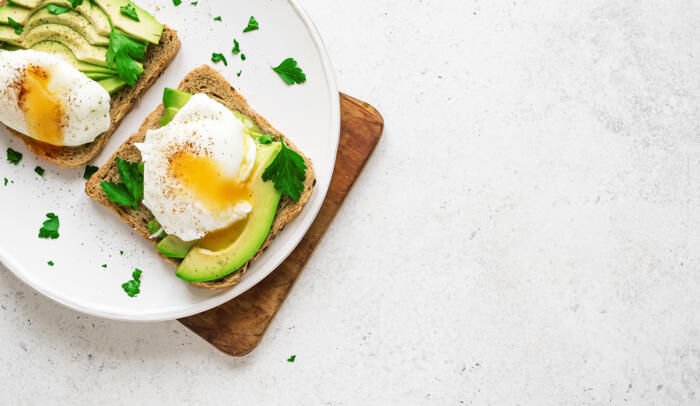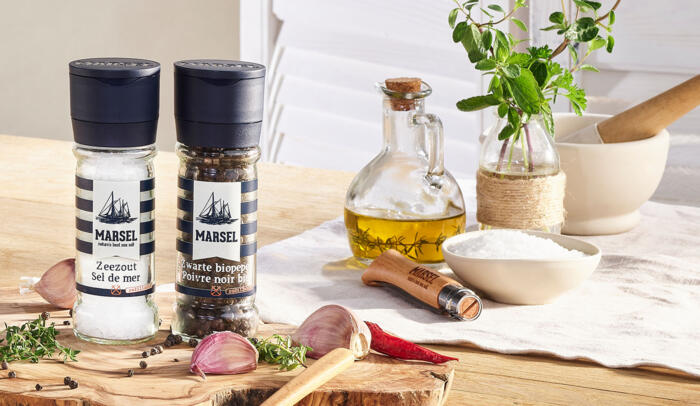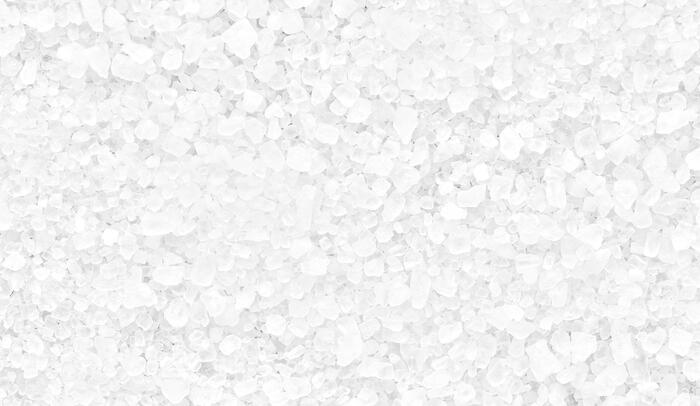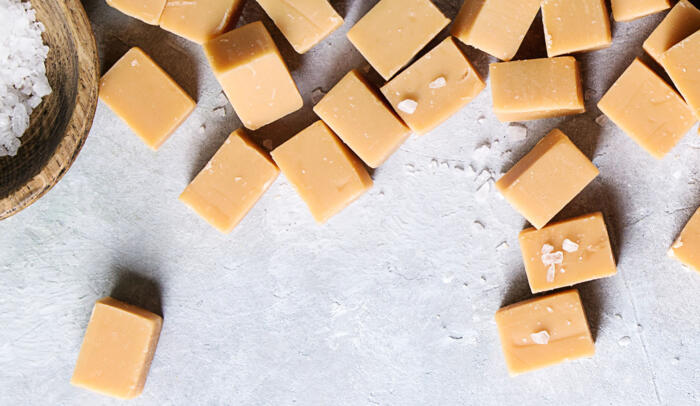A healthier life thanks to salt substitutes in the kitchen? If only it was that simple
In January 2025, the World Health Organisation (WHO) published new guidelines on low-sodium salt substitutes or so-called LSSS salts. The WHO states that the global reduction in salt consumption is progressing too slowly and recommends that regular kitchen salt is replaced by potassium chloride in order to keep sodium intake under the recommended level of 2 g per day. Those who read the guidelines carefully, however, will see that the WHO also emphasises the fact that this recommendation should not simply be followed blindly.

Will we soon replace table salt with a salt substitute in the kitchen? It's not that simple.

The real problem: hidden salt in processed food
The WHO guidelines have generated headlines such as "Get rid of kitchen salt!", despite the fact that the biggest issue is not the salt in your kitchen cabinet. The majority of salt consumed in Western countries comes from hidden salt in processed foods such as snacks, ready meals and fast food.1
People who eat a varied and balanced diet shouldn't need to worry about adding a pinch of salt to a fresh, home-made meal. Moreover, various studies have shown that there is no clarity on whether sodium reduction actually offers health benefits.2

The limitations of salt substitutes
The press articles stating that the health risks of excessive salt consumption can be rectified by merely replacing kitchen salt with salt substitutes are short-sighted and potentially misleading. The recommendation to use salt substitutes must also consider psychological, ecological, flavour and health aspects.
- Flavour: Potassium salt has a bitter and metallic flavour. Consumers only like it when the blend contains a maximum of 30% potassium chloride and 70% regular kitchen salt.3
- Consumption: Salt substitutes do nothing to reduce the consumers’ preference for salty food. Research has even shown that people tend to add more potassium chloride during cooking than regular kitchen salt. As a result, sodium intake barely reduces at all while potassium intake, which may also be linked to as yet unknown health risks, increases.4
- Sustainability: Potassium chloride is extracted from rock salts and this energy-intensive process has a far greater environmental impact than naturally evaporated salts such as sea salt.5
- Health: The WHO has warned that potassium salt is not recommended for pregnant women, children or kidney patients. Additionally, the likely benefits of salt substitutes would only apply to people with an existing increased cardiovascular risk.6
- Iodine deficiency: Fewer than half the salt substitutes currently contain iodine, essential for healthy thyroid gland functioning. This topic is high on the agenda of the United Nations. Anyone switching to salt substitutes runs the risk of an iodine deficiency.7
Strong regional variations
The WHO also states that the way in which we consume nutritional salt varies widely from country to country. In China, salt is principally added during cooking whereas, in Western countries, it is usually found in processed foods. As a result, replacing kitchen salt with salt substitutes would be more effective in countries such as China, but less effective in Europe.8 Furthermore, the WHO warns that the use of LSSS in prepared foods has not yet been sufficiently researched and potential health risks are as yet unknown.9 Finally, the WHO admits that evidence on the benefits of salt substitutes is of low quality and must be further researched.
Conclusion: work together on careful salt consumption
As a European salt producer, we see the WHO’s recommendation as a chance to work with the food industry while focussing on sodium reduction, rather than just blindly concentrating on salt substitutes. We can use innovation and collaboration to ensure consumers continue to enjoy tasty meals, with sodium or potassium chloride, but more importantly, using common sense.
An honest dialogue about salt
Let's be clear: this text was written by ZOUTMAN - a Belgian salt producer. So we clearly have a vested interest. With this piece, we are not trying to question the impact of salt on health. Of course, we recognise the importance of careful salt consumption, just like we understand that careful dietary choices in general are important.
We are aiming to create a critical dialogue about the right interpretation of the WHO recommendation and the corresponding media messages. Please send any comments to sustainability@zoutman.com.
Sources
1 Use of lower-sodium salt substitutes: WHO guideline. Geneva: World Health Organization; 2025. Licence: CC BY-NC-SA 3.0 IGO, p. 17
2 Reducing Salt Intake for cardiovascular prevention, presentation by Prof. Dr. Jan A. Staessen, University of Leuven & Maastricht University
3 Use of lower-sodium salt substitutes: WHO guideline. Geneva: World Health Organization; 2025. Licence: CC BY-NC-SA 3.0 IGO, p. 21
4 Use of lower-sodium salt substitutes: WHO guideline. Geneva: World Health Organization; 2025. Licence: CC BY-NC-SA 3.0 IGO, p. 20
5 Ullmann’s encyclopedia of Industrial chemistry, Franz Götzfried & Stefan Schlag Leon Beraud
6 Use of lower-sodium salt substitutes: WHO guideline. Geneva: World Health Organization; 2025. Licence: CC BY-NC-SA 3.0 IGO, p. 19
7 Use of lower-sodium salt substitutes: WHO guideline. Geneva: World Health Organization; 2025. Licence: CC BY-NC-SA 3.0 IGO, p. VIII
8 Use of lower-sodium salt substitutes: WHO guideline. Geneva: World Health Organization; 2025. Licence: CC BY-NC-SA 3.0 IGO, p. 17
9 The road to finalizing the LLLS guideline, presentation by Professor Shiriki Kumanuika



